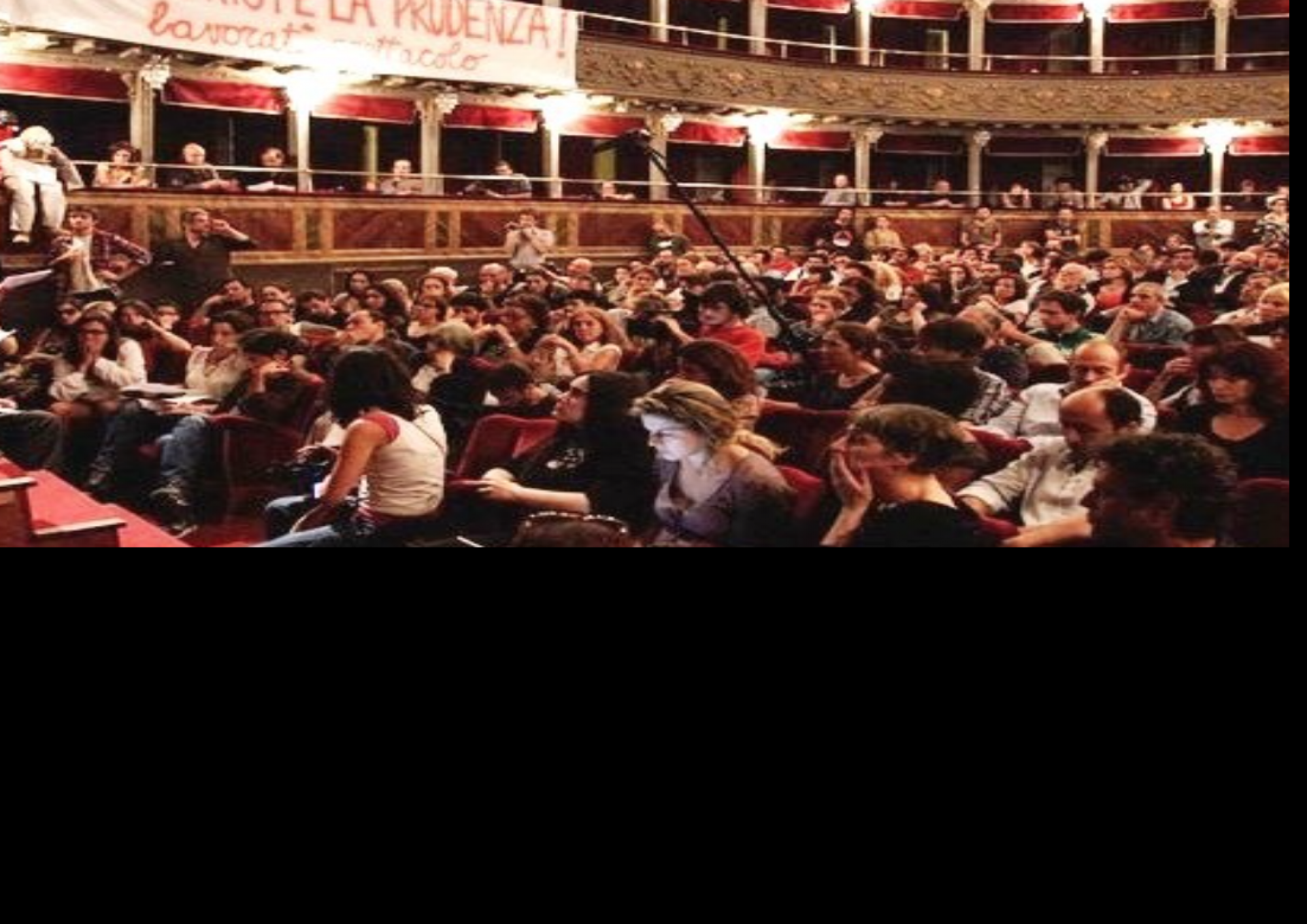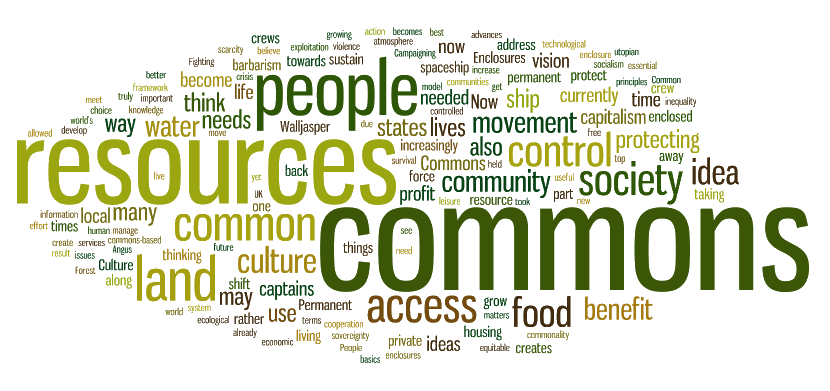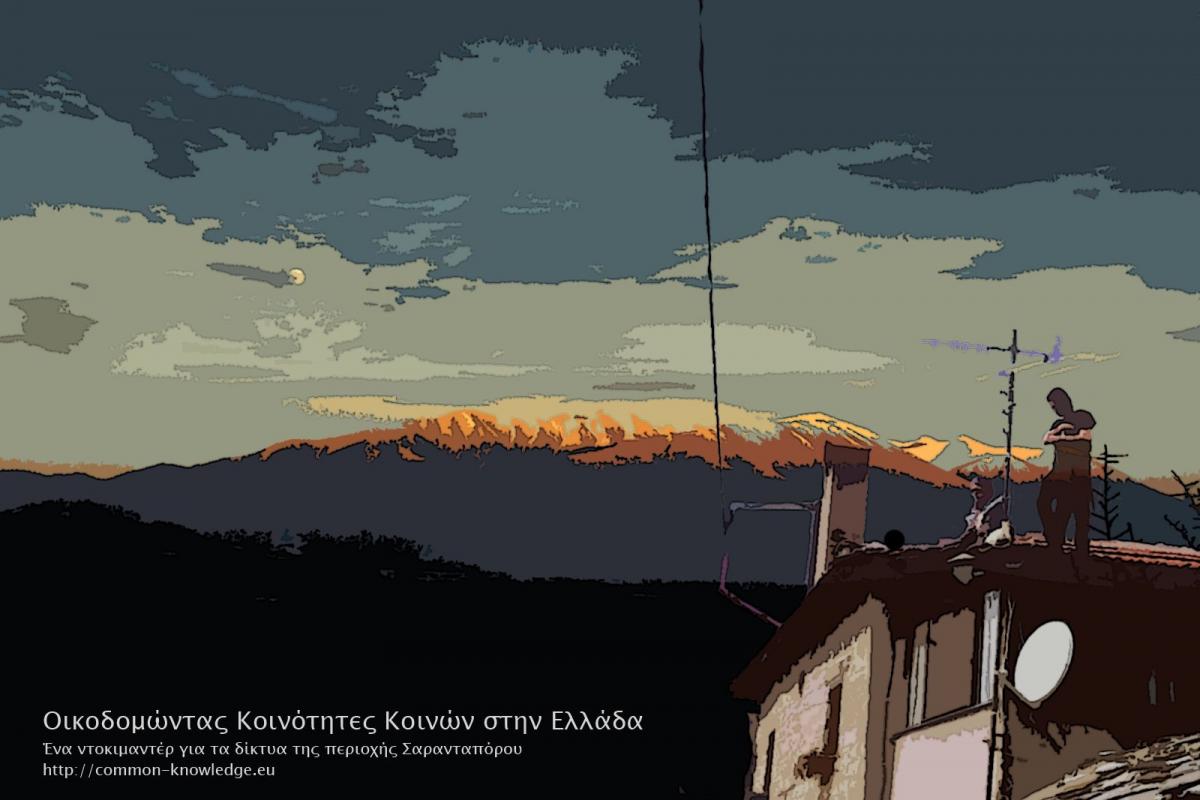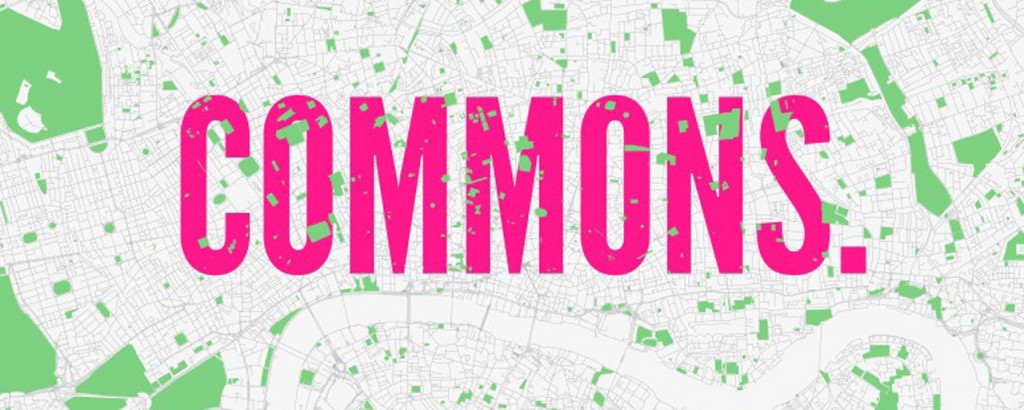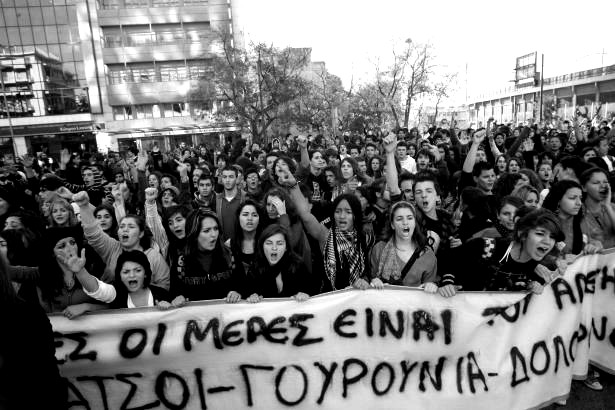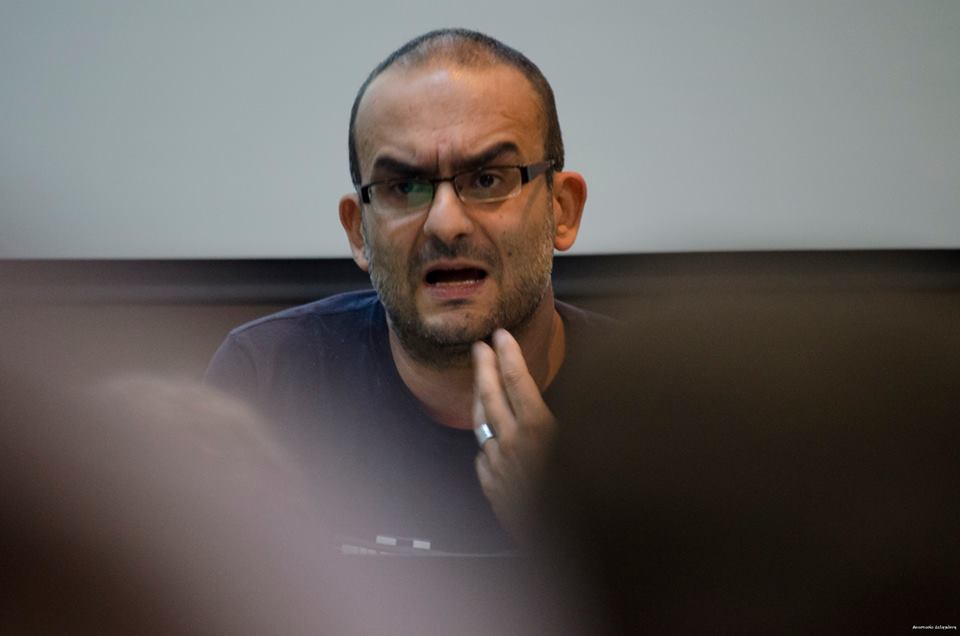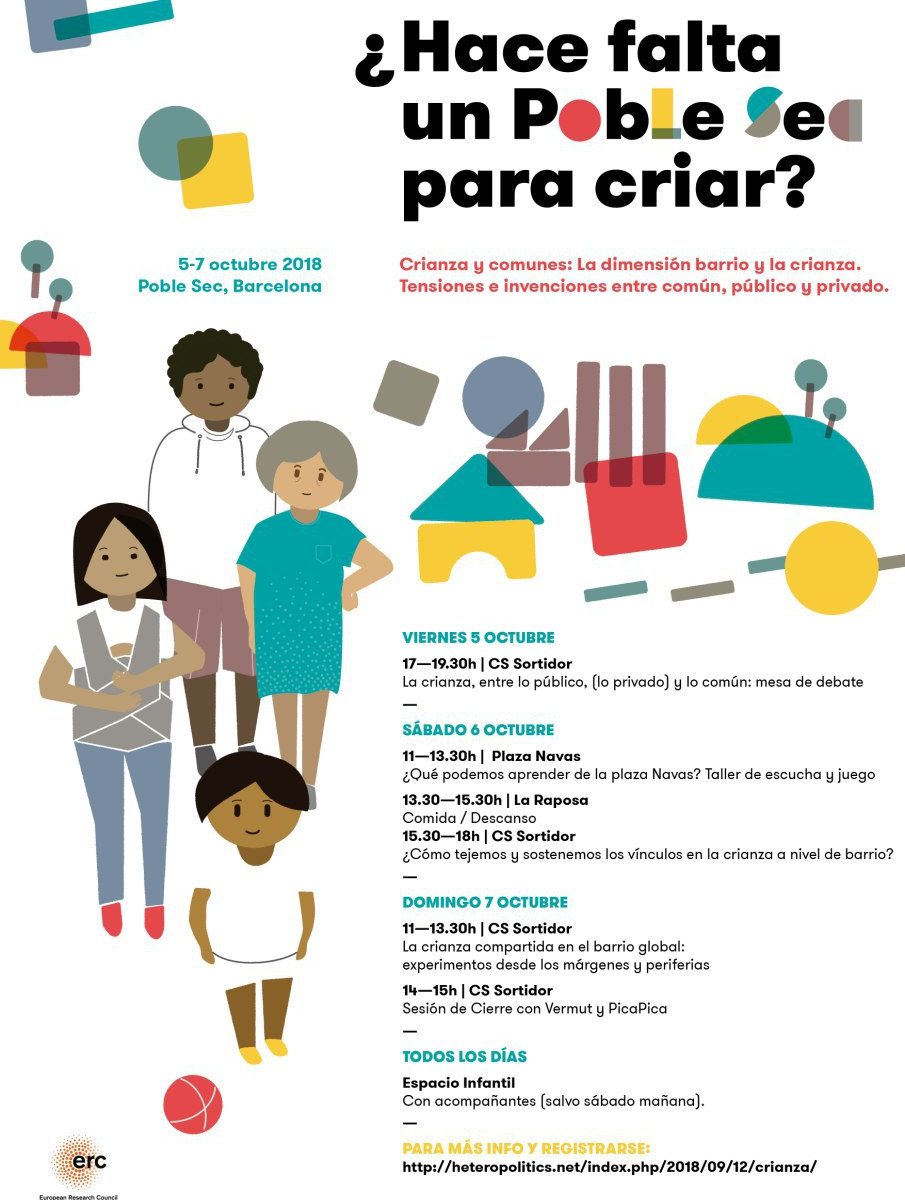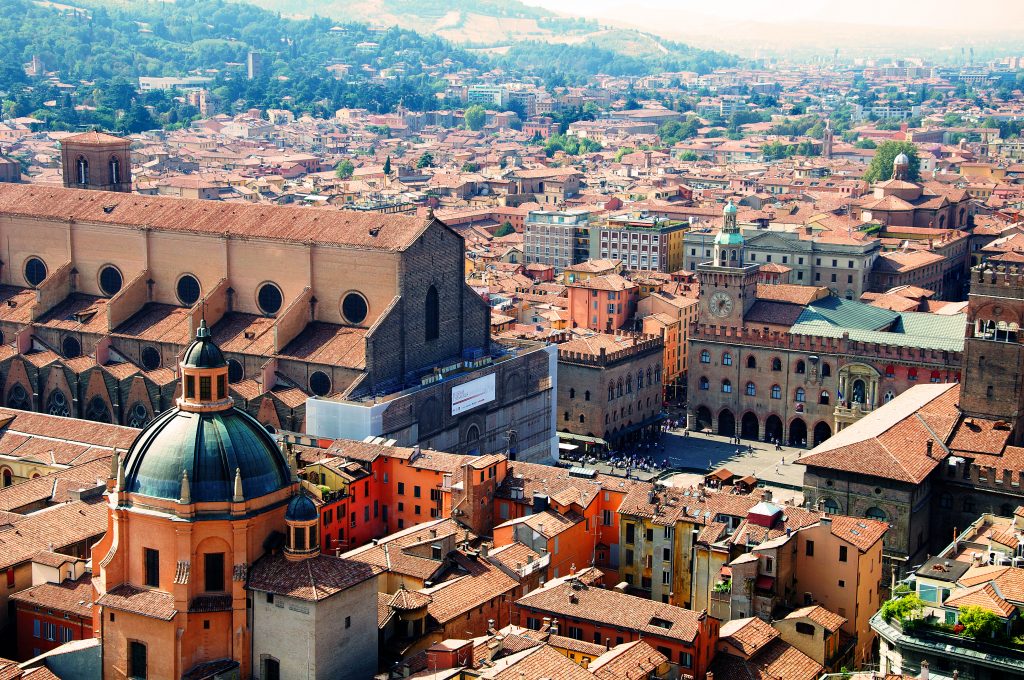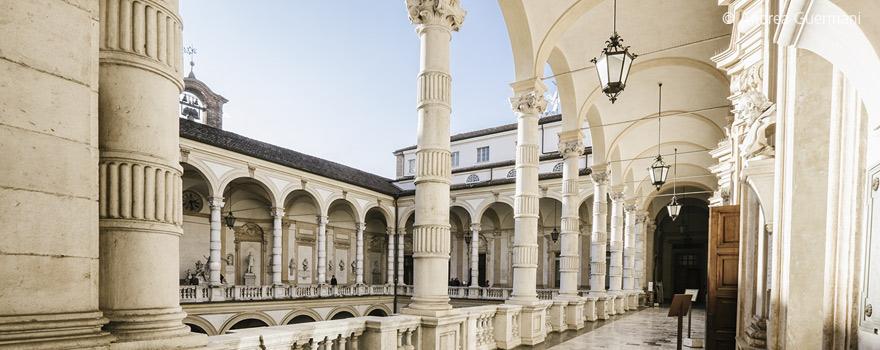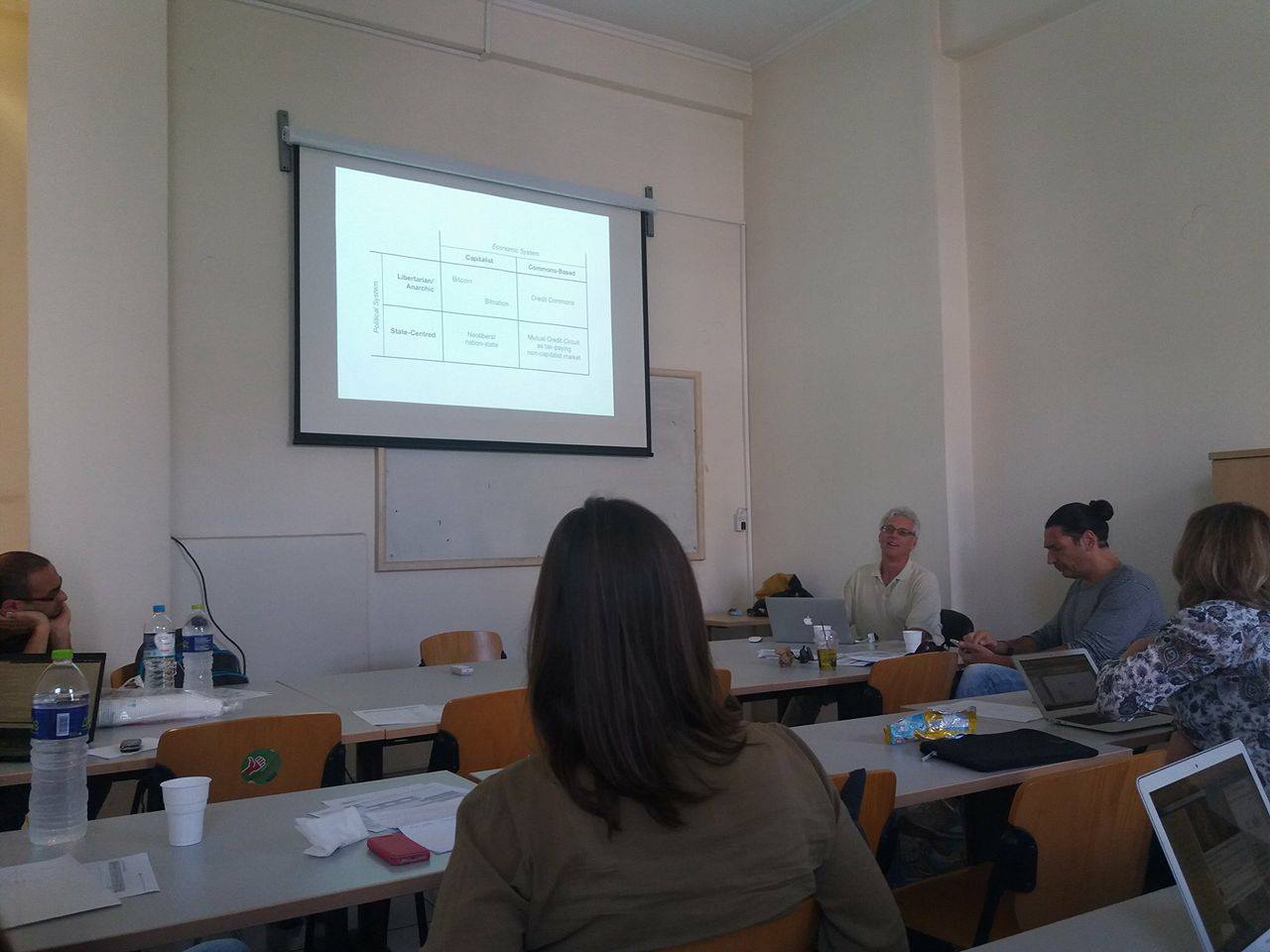The second international conference “Social Solidarity Economy and the Commons” will be a meeting point for researchers, activists, public officials and social entrepreneurs involved in social and solidarity economy, governance of the commons and new social movements in different parts of the world.
Call for Papers: Infrastructuring the Commons Today, when STS meet ICT
Journal of Peer Production
Call for Papers: Infrastructuring the Commons Today, when STS meet ICT
Peer production and collaborative forms of technological design – such as those based on commons-oriented approaches – have at their core a critical stance towards the technoscientific landscape, an approach shared with Science and Technology Studies (STS) as a theoretical archipelago that has produced a significant wealth of knowledge that points out the social constructive and performative character of technoscience.
Continue reading “Call for Papers: Infrastructuring the Commons Today, when STS meet ICT”
Interviews of activists from Sarantaporo.gr
From October 2017 to June 2018, in the framework of the Heteropolitics ERC COG (2017-2020) Research Project, we conducted ethnographic research in Elassona, where over the past nine years eleven villages have built, run and maintain a Wireless Community Network (WCN), sarantaporo.gr. The aim of our research is to contribute to the debate on Commons through feedback from the field where such ventures take place. More specifically, the aim of Heteropolitics is to highlight alternative, self-organised communities of Commons. In the case-study of sarantaporo.gr, we have focused on the community created around a Digital Commons and the perceptions emerging from participation in the WCN concerning the infrastructure, which is provided by all participants to all the inhabitants of the villages that belong on the network, either they are participants or not. The following narratives (in Greek) from interviews we held answer questions such as:
- How do the Commons emerge as everyday politics?
- How do the Commons differ from bureaucratic state policies?
- How do the subjectivities of participants emerge and get transformed in the contexts of such endeavours?
- How do participants understand their role in the endeavour and in the wider society they belong to?
You can read the full interviews (in Greek) here.
Call for Papers: Re-visiting the Communication Commons
Popular Communication: The International Journal of Media and Culture
Call for Papers: Re-visiting the Communication Commons
In the last decade, the concept of the commons has become prolific, if not popular. There are millions of references to the commons in a very wide range of literatures, from the academic, social activist, to the UN-and other multilateral institutions, think tanks, and popular literatures. However, in most, the idea of the commons is rather vague, a stand-in for public resources that avoids any references to specific collectivities of people, places, political economies and systems of power, and/or the historical and conflict-ridden origins of the commons at the dawn of the capitalist era in Northern Europe.
Continue reading “Call for Papers: Re-visiting the Communication Commons”
From December 2008 to the Commons of our time
Tomorrow evening at 19:30, Alexandros Kioupkiolis will be a guest of the Refugee Center of Chania for a debate (spurred by the publication of his book ‘Politics of Freedom: Agonistic democracy, meta-anarchist utopias and the emergence of the multitude‘) on the significance of December 2008 and the commons of our time.
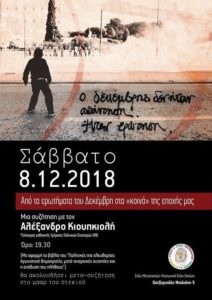 For more information (in Greek) about the event: https://www.kinimatorama.net/event/103325?userCalendar=55
For more information (in Greek) about the event: https://www.kinimatorama.net/event/103325?userCalendar=55
Interview with Alexandros Kioupkiolis on the commons
The current issue of Marginalia features an interview with Dr. Alexandros Kioupkiolis, in which he argues that “what is crucial in the social and solidarity economy is the conscious political orientation”.
You can read the interview (in greek) here.
Crianza y Comunes: Hace falta un Poble-sec para criar? Encuentro
La dimensión barrio y la crianza. Tensiones y invenciones entre común, público y privado.
5-7 octubre 2018
Poble Sec, Barcelona
En este encuentro contamos con un espacio infantil con acompañante.
Continue reading “Crianza y Comunes: Hace falta un Poble-sec para criar? Encuentro”
1st report on Heteropolitics’ field research in Bologna
This is a brief report on the fieldwork in Bologna, Italy, as conducted by the PI: Alter-politics and commons in Bologna 4 -10 June 2018
We post it in a draft form, because it conveys a concise and illustrative idea of our approach, containing some preliminary conclusions of Heteropolitical research and some interesting points about the commons and the political in the contemporary Italian context.
Audio from the 2nd day of the Torino workshop on law, the commons and politics in Italy, with Ugo Mattei, Alessandra Quarta and Rocco Albanese
Illuminating, critical and constructive discussion of how the law is implicated in the promotion of alternative politics of the commons in the contemporary Italian context by leading scholars engaged in the field:
Kick-off Meeting @ Thessaloniki, 7-8 May 2017
DAY 1 , 7 MAY 2017
1st session: 3.00pm-4.30 pm
Introduction to the key ideas, objectives and methods of the Heteropolitics project
by Alexandros Kioupkiolis
Presentation followed by discussion
Continue reading “Kick-off Meeting @ Thessaloniki, 7-8 May 2017”
